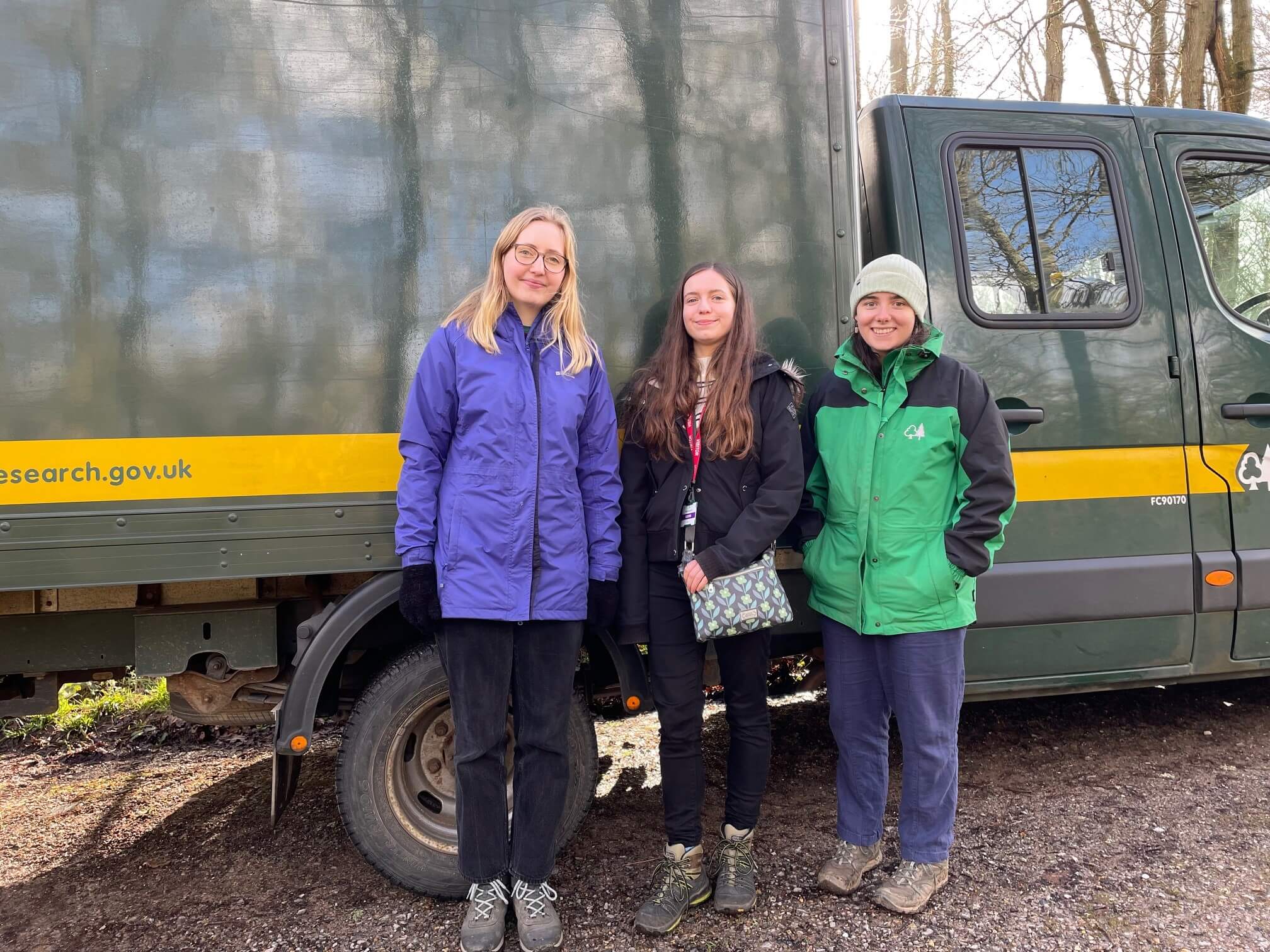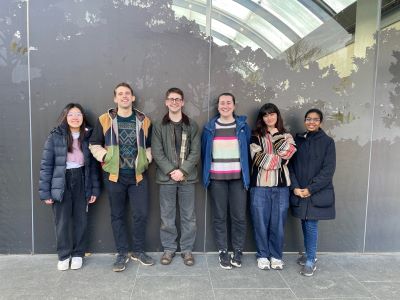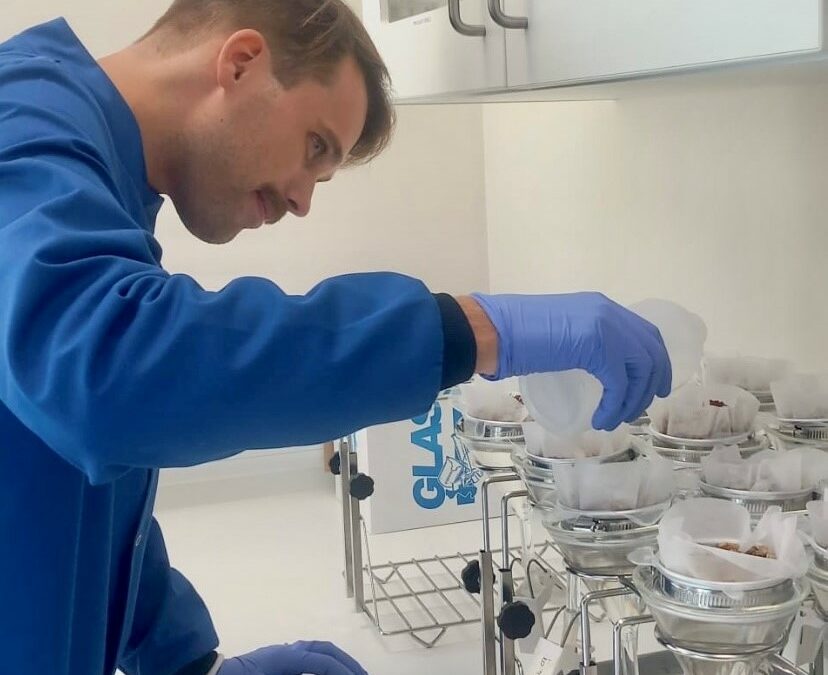Our internship programme not only provides interns with the chance to work on fascinating projects of their own, but they also get the chance to find out more about the wider work of Forest Research and Kew Science.
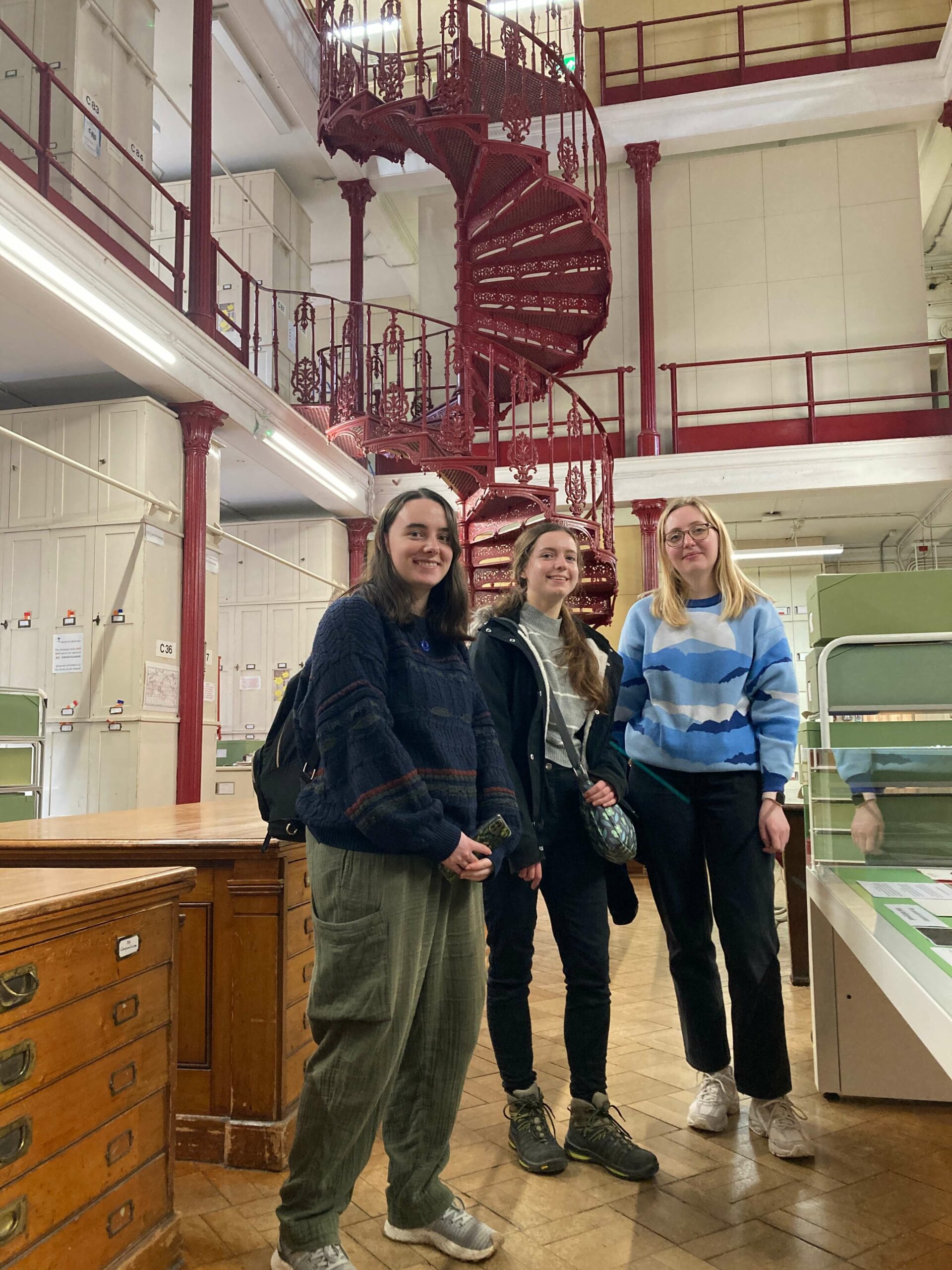
Sian, Eve and Phoebe visit the Kew Herbarium
After presenting their projects to an audience of scientists at our recent symposium, our interns spent two days visiting Kew Gardens and Forest Research’s Research Centre at Alice Holt Forest to learn about the work of the two organisations. It was also a great chance for our three interns to get to know each other better as they are all located at different sites this year.
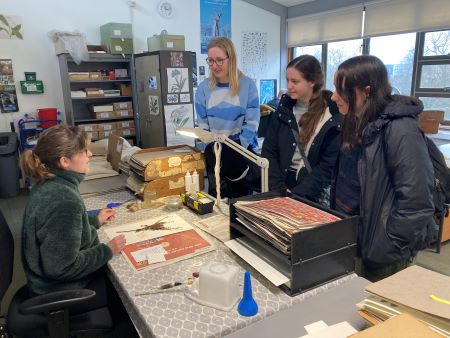
The interns learn about how Herbarium specimens are mounted onto sheets
At Kew, Phoebe, Sian and Eve had a chance to explore the Kew Herbarium, where specimens of plants all over the world are stored and used for research. Emma, who works as a specimen preparer at the Herbarium demonstrated the mounting process by which specimens are prepared and placed onto herbarium sheets in the mounting room, ready for accession into the collection. They toured the gardens in the afternoon and were able to escape from the rain into the popular Orchid festival, which this year focused on orchids from Madagascar.
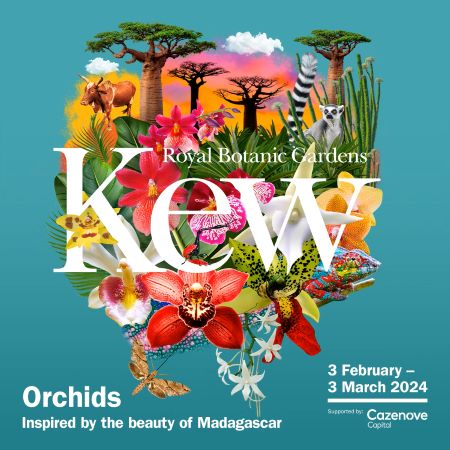
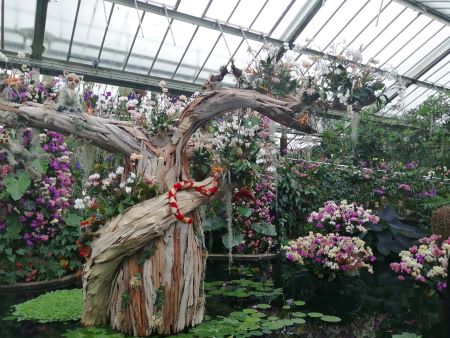
The Orchid Festival
Three of our early career researchers from Kew, Jaz, Mohammad and Rômulo joined our interns for the visit to Forest Research at Alice Holt Lodge in Hampshire. They heard all about Forest Research’s diagnostics work on fungal pathogens from David and Alex from the Tree Health Pathology team. They found out how members of the public and land managers can report tree health issues to the diagnostics teams via TreeAlert, a really important tool in monitoring and surveillance for tree health.
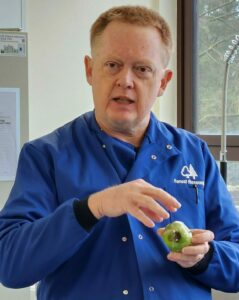
Apparently Granny Smiths are the best sort of apples for growing some pathogens
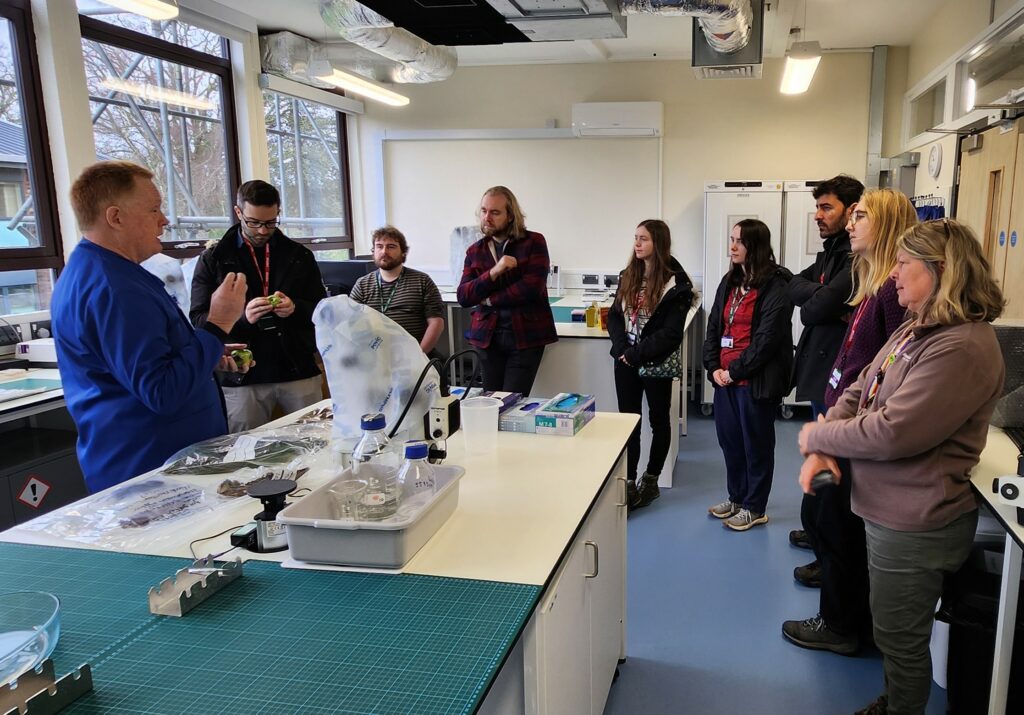
Learning about the pathology diagnostics service at Forest Research
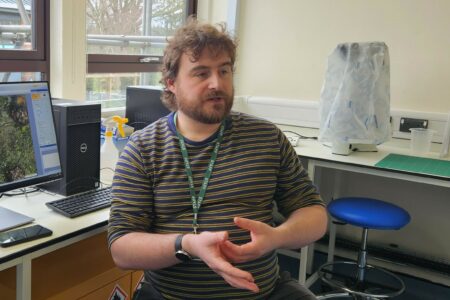
Alex explains the role of the TreeAlert reporting service to our interns and Kew researchers
Entomology Response Manager, Anna, showed the team some of the insect collections and told them about the outbreak responses and diagnostics work in relation to insect pests that Forest Research carry out.
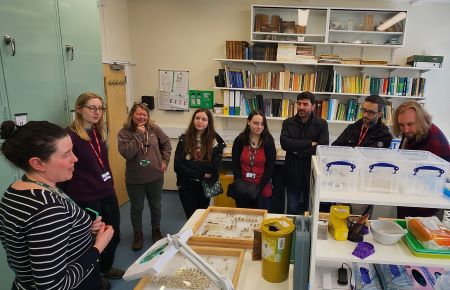
The entomology team have access to samples of many different insects that can cause problems for trees
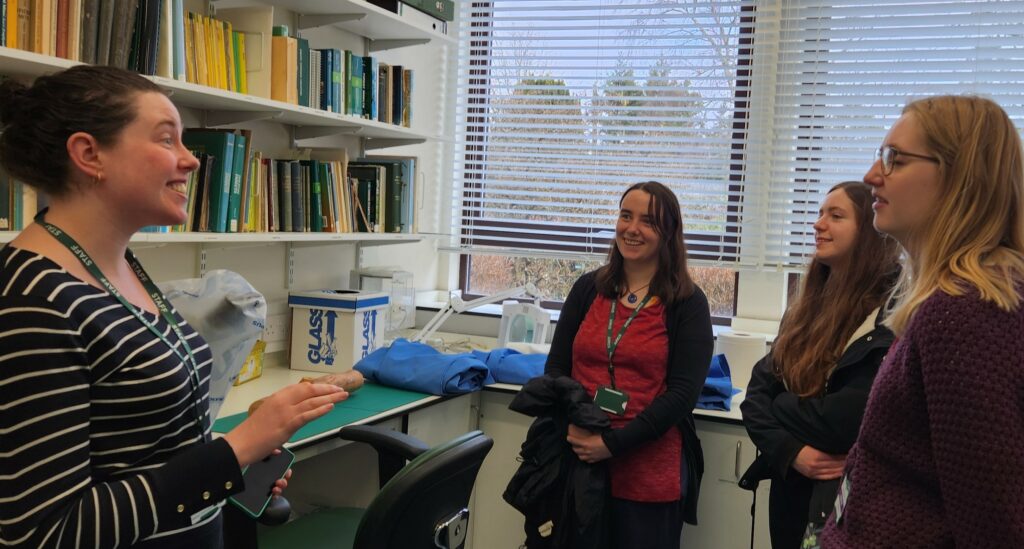
The entomology team respond to outbreaks of pests such as Ips typographus
They also had a chance to see the Forest Research mobile lab, which can be taken into the field for on-site research and is equipped with machines that can do DNA extractions and some lab analyses in the field.
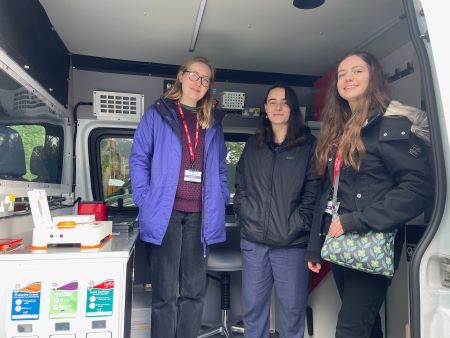
The mobile laboratory
In the afternoon they visited an experimental woodland site and heard from Mike from the climate team about how long-term forest monitoring plots are being used for a range of experiments.
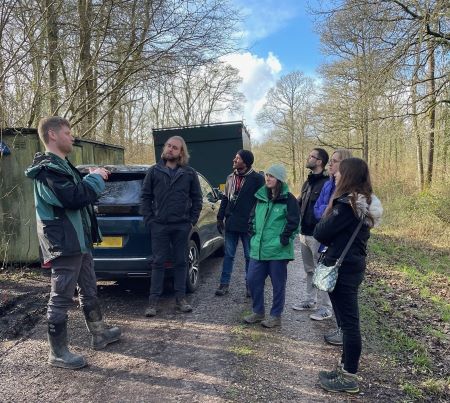
Forest Research is responsible for long term monitoring plots
